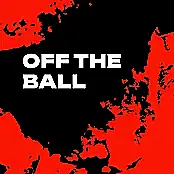We have been led to believe over the last decade or so that society has a better understanding of depression and mental health but the case of Naomi Osaka tells us that is complete nonsense.
The four-time Grand Slam winner from Japan has taken admirable stances in the past, highlighting police violence against the African American community and joining the Black Lives Matter protests, but this week was her most impressive.
Supposedly intelligent (mainly) men of a certain age jumped on to social media after Osaka's first statement last Thursday before the start of the French Open, solely to castigate the 23-year-old for pulling out of all press conferences at Roland Garros. It was Osaka's attempt at highlighting mental health issues on behalf of all players.
It is a shame that those angry men did not take the time to read her statement properly, because at no point did she call for an end to all post-match press conferences, rather highlighting the fact that they are mandatory and that players are threatened with fines for not attending them, no matter how they may be feeling in that 30-minute window after the end of their match.
Surely, asking tournament organisers and tennis governing bodies to show more care and consideration for their players when they are in a fragile mental state after a bad defeat is a reasonable request? While it is also worth remembering that not all professional players earn as much as Osaka and those further down the rankings may struggle to pay a fine of up to $20,000.
Then there were the oafish assertions that if Osaka is too depressed to do a press conference, she should stay away from the tournament which is to spectacularly miss the point of how sport, music, art and many other forms of human expression can be valuable tools in helping a person with depression or anxiety deal with those problems.
Take a famous singer like Sinead O'Connor who has been open in the past about her own battles with the illness. A shy woman, like Osaka, who was a powerhouse when she sang on stage and there is no doubt that every single one of her live performances were cathartic for her, and that the adoration received from the audience was something that lifted her mood and made her feel good about herself.
No different to an athlete taking to a court or a pitch, physically exerting themselves, proving their worth in the world against the best in the world, and soaking up the cheers of an appreciative crowd... feeling loved and feeling wanted.
There is one difference though, the singer does not have to sit before a roomful of strangers after a gig, taking on a myriad of questions as the adrenalin is still pulsating throughout their body and their head is in a spin.
Any person who has experienced that sickening knot of anxiety in the pit of their stomach will tell you that even performing the smallest of tasks like say, calling their mother or meeting friends in a bar, can seem like impossible jobs, never mind sitting alone in a room at a table with every single person watching your every move. With the eyes of the world watching you.
One of the most important points that everyone needs to factor in when considering the case of Naomi Osaka is that a person dealing with depression and/or anxiety generally cannot think rationally and may also do irrational things. All four Grand Slam tournament organisers certainly did not consider this, as demonstrated by their joint statement in which they accused her of a "lack of engagement".
Maybe ganging up on a vulnerable, young woman was the wrong approach to take but they are not the only ones.
Osaka revealed in her statement on Monday night that she has "suffered long bouts of depression since the US Open in 2018" and that she has a "hard time coping with that". In case you have forgotten, that was the first Grand Slam title she won at just 20 years of age, beating her idol Serena Williams in straight sets.
Sadly, the crowd booed her despite Williams arguing with the umpire. Over 23,000 people booed her on what should have been one of the greatest days of her life. The booing was so bad, her idol Williams had to comfort her, as she sobbed, with an arm around her shoulder.
She is being booed again this week. We can only hope that someone else has an arm around her now.
Download the brand new OffTheBall App in the Play Store & App Store right now! We've got you covered!
Subscribe to OffTheBall's YouTube channel for more videos, like us on Facebook or follow us on Twitter for the latest sporting news and content.








